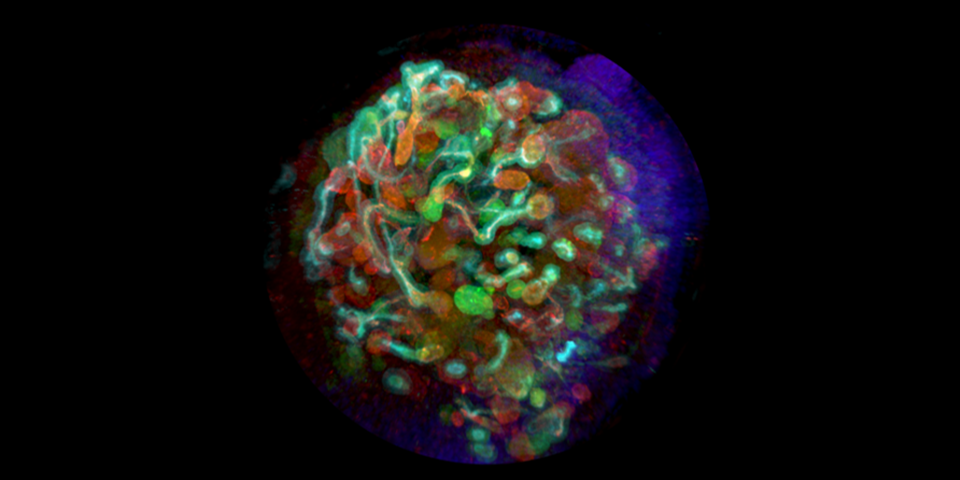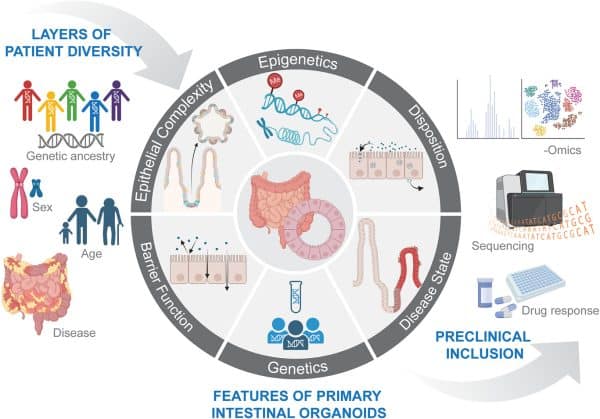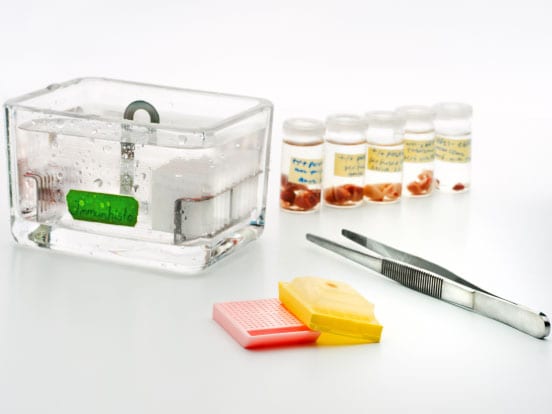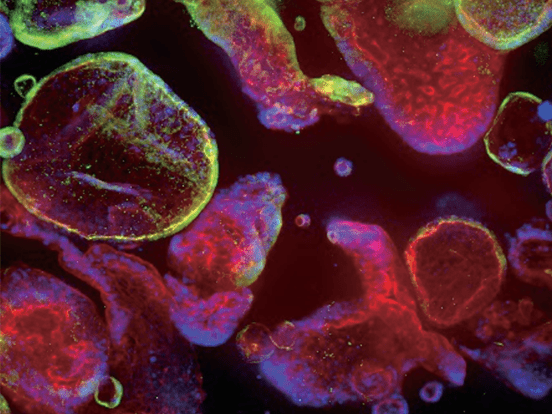In an article published in Advanced Biology in 2023, Dr. Julia Y. Co, Dr. Jessica A. Klein, Dr. Serah Kang, and Dr. Kimberly A. Homan from Genentech Inc. advocate for the incorporation of diverse human populations into preclinical drug development using intestinal organoids. They emphasise the importance of representative model systems to enhance predictive power in early-stage drug development.
The proposed solution involves using primary human intestinal organoids as in vitro models for research and drug development. Intestinal organoids are three-dimensional (3D) multicellular structures derived from stem cells, and they offer advantages in recapitulating physiological complexities while maintaining donor-specific characteristics. These organoids not only replicate tissue functions and disease states but also retain the genetic identity and epigenetic signatures of the donors, making them an ideal model for capturing human diversity. Dr. Co and coauthors call for an industry-wide effort to actively integrate diversity into preclinical drug programs using intestinal organoids.
However, the integration of intestinal organoids as an inclusive model into research and drug development practices is not without its challenges. To facilitate inclusive research, Dr. Co and her fellow scientists suggest establishing intestinal organoid biobanks to enhance accessibility and address sample acquisition and data availability issues. Additionally, they emphasize the need for scalable and automated culture protocols to enable broader research and adherence to FAIR (Findable, Accessible, Interoperable, and Reusable) data principles for meaningful outcomes.
By implementing these strategies, Co et al. (2023) believe that intestinal organoids can be effectively utilized as an inclusive model to enhance the predictive power of preclinical drug development and ultimately improve patient outcomes.
Even in the midst of the COVID-19 pandemic, the World Economic Forum’s report, “Closing the Women’s Health Gap 2024,” brought attention to the pressing issue of global gender disparities in healthcare. Despite comprising the majority of healthcare workers, women continue to face significant barriers in accessing leadership roles and equitable healthcare services.
The report underscores the imperative of prioritizing women’s health as a fundamental human right and integral aspect of sustainable development. However, an alarming finding emerged regarding the development of COVID-19 vaccines: while women participated in trials, the consistent reporting of sex-specific data was lacking. Shockingly, only a small fraction of studies provided such data, and an even smaller percentage planned for sex-disaggregated analysis.
This oversight is critical, as it impedes our understanding of how vaccines affect women differently and undermines efforts to ensure their safety and efficacy. With less than 5% of researchers considering sex-disaggregated data in their studies, there’s a clear need for action to address this gap. The report’s findings underscore the urgency of integrating gender perspectives into healthcare research and policy-making. As we navigate the challenges of the pandemic and beyond, it’s imperative to prioritize women’s health and work towards a future where all individuals have equal access to quality healthcare.






